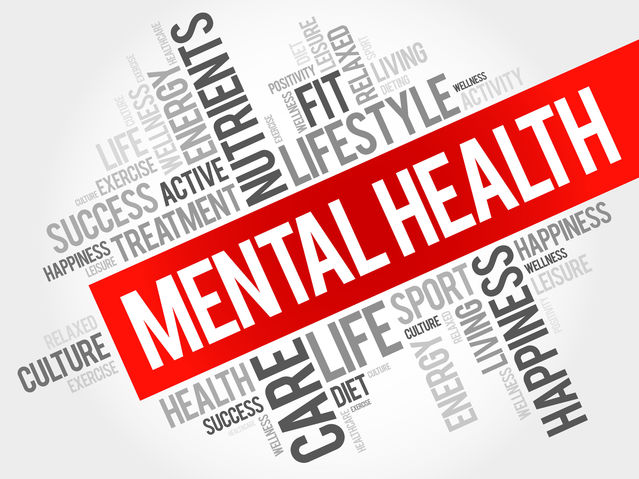
Psychopharmacology
Being Mentally Healthy and Mentally Ill at the Same Time
Mental illness shouldn’t stop you from living a mentally healthy and happy life.
Posted August 19, 2018

Stigma related to mental illness effects how we go about obtaining treatment and can limit success in our work and social lives. Stigma is not just related to how others see us but it is also a problem with how we view ourselves.
Stigma surrounding mental illness can be broken into two types.
External Stigma, or false assumptions made by others:
- An assumption that the person is responsible for their illness, that they somehow chose this.
- The person is unpredictable on a day to day basis.
- The person is incompetent.
- The person is dangerous.
Internal Stigma, or false assumptions we make about ourselves:
- Misinterpretation of our own abilities and strengths.
- Negative assumption of our social desirability to others.
One of my goals in my work with my patients is to help them understand that being diagnosed with a mental illness doesn’t mean they are unable to live a mentally healthy life. This usually requires a three-part process:
Part 1: Defining Mental Health
Understanding that mental health and the ability to live a mentally healthy life is not determined by being diagnosed with a mental illness.
Some of the abilities that define a mentally healthy life, according to the World Health Organization, are:
o Realizing and understanding your own abilities.
o Ability to cope with normal stresses in life.
o To be productive and contribute to the overall community.
o Ability to build relationships.
o Participation in society.
Part 2: Diagnosis
Although people want to have an official diagnosis it is not always possible. Not all symptoms present at the same time so often the diagnosis we use is actually a “working diagnosis” and can change over time as new symptoms become apparent. Understanding this is important because being labeled with a diagnosis affects how the world views us and more importantly how we view ourselves.
Part 3: Living life
Once we develop our own definition of what a mentally healthy life is and we have an understanding of our symptoms we need to learn how to manage our symptoms and use our abilities to have the life we defined.
Currently I’m working with a 30-year-old, single, man who started hearing voices at age 14. Prior to that his parents report that he was a little different than other kids, something they noticed, but it didn’t seem to interfere with him developing friendships and participating in school.
He was evaluated by a psychiatrist and treated for early schizophrenia. He also started working with a therapist to help him adjust to any adversity he may experience.
When other kids talked about having asthma, or some other illness, and needing medication he would tell them about his diagnosis and medication. He wasn’t aware of the stigma other people would have toward this and over the next year kids started to avoid him. Other parents avoided interaction with him and his parents.
Around that time, he started to feel isolated and depressed. When he expressed his feelings that other people were talking about him it was assumed that this was a symptom of his illness and not really happening—even though there was a strong possibility that other kids didn't understand his illness and may have been talking about him. He started isolating more and eventually stopped going to school. He obtained his GED and went to a community college earning a degree in Library Science. He decided he wants to work in an environment in which he doesn’t have to talk to people too much but can still be around them.
He is stable on his medication, tolerating it well, and is socially active. He has been working in a local library for the past few years and enjoys his work. He would like to be in a relationship but is worried about being with someone and how they will react to his illness.
He does hear voices at times but it is never clear to me if they are ruminative thoughts or actual auditory hallucinations. He never seems to be responding to them.
“When was the last time you heard the voices?”
“A few days ago.”
“What did they say? Was it one voice or more than one voice?”
“It was a man’s voice, just one. It was saying my name and I just ignored it.”
“How are things going socially? Are you dating or getting out with friends?”
“No dating, although I did meet someone at Starbucks the other day and then they came into the library and we talked for a few minutes. I got her phone number and have to get up the nerve to call her. I also have 2 friends that I do things with.”
“How’s work?”
“It’s good. I like it. I like my co-workers. I do wish people would follow the rules about talking on their phones. I don’t really get how easily they will blatantly ignore the rules. It can be particularly hard for me at times.”
“Why?”
“People seem to think that if they are talking into their phone and whispering then it’s okay. They might as well be talking in their regular voice because it is just as disturbing to everybody as their whispering is. It was making me more anxious at times because I would think the voices in my head are getting worse, having conversations instead of just saying my name. Now I'm just used to it. My initial reaction is to look around to see if anyone is on their phone. Usually it’s easy to spot them. I’m starting to think of it as my own exposure therapy. It happens so often that sometimes I find that I am able to ignore their voice and the other voices without really even thinking about it.”
Our understanding of mental illness as having a genetic and biological basis is increasing and with that are our abilities to navigate the difficulties that they present have improved. Having a mental illness doesn’t mean you are unable to live a mentally healthy life, but it does mean that you may need to adjust your understanding of how you interact with the world. Stigma surrounding mental illness, as with any type of stigma, doesn’t account for the individual and doesn’t even account for the most common. It does account for extremes and fears of its target and this can really harm how someone develops and succeeds in life.
Fighting stigma outside ourselves is important but it is also important to understand our own internalized stigma. It’s important to understand any deficits or differences we may have and learn to work with them instead of feeling cheated and discounted by them.
References
World Health Organization-Mental health: strengthening our response- March 30, 2018
World Health Organization’s comprehensive mental health action plan 2013-2020. 66th World Health Assembly
Mental health stigma and communication and their intersections with education; Rachel A. Smith and Amanda Applegate- Journal of Communication Education 5/21/2018



